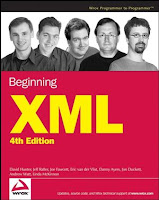Chomsky Article
I found another good article on Noam Chomsky’s website, called Superpower and Failed States. Check it out, it’s a good read.
As usual, I’ll throw up a couple of quotes. For this first one, he’s talking about the terms “terrorist state”, “rogue state”, and “failed state”:
And I thought this section was nice:The rhetoric has always raised difficulties, however. The basic problem has been that under any reasonable interpretation of the terms – even official definitions – the categories are unacceptably broad. It takes discipline not to recognise the elements of truth in historian Arno Mayer’s immediate post-9/11 observation that since 1947, “America has been the chief perpetrator of ‘pre-emptive’ state terror and innumerable other ‘rogue actions’,” causing immense harm, “always in the name of democracy, liberty and justice.”
Read the article. It’s not too long, and it’s very understandable. (I know some people don’t like reading about politics, because they think it will be boring or indecipherable, but not all of it is like that.)One commonly hears that carping critics complain about what is wrong, but do not present solutions. There is an accurate translation for that charge: “They present solutions, but I don’t like them.”
Here are a few simple suggestions for the US:
1. Accept the jurisdiction of the International Criminal Court and the World Court;
2. Sign and carry forward the Kyoto protocols;
3. Let the UN take the lead in international crises;
4. Rely on diplomatic and economic measures rather than military ones in confronting the grave threats of terror;
5. Keep to the traditional interpretation of the UN Charter: The use of force is legitimate only when ordered by the Security Council or when the country is under imminent threat of attack, in accord with Article 51;
6. Give up the Security Council veto, and have “a decent respect for the opinion of mankind,” as the Declaration of Independence advises, even if power centres disagree;
7. Cut back sharply on military spending and sharply increase social spending: health, education, renewable energy and so on.
For people who believe in democracy, these are very conservative suggestions: They appear to be the opinions of the majority of the US population, in most cases the overwhelming majority. They are in radical opposition to public policy; in most cases, to a bipartisan consensus.





0 comments:
Post a Comment